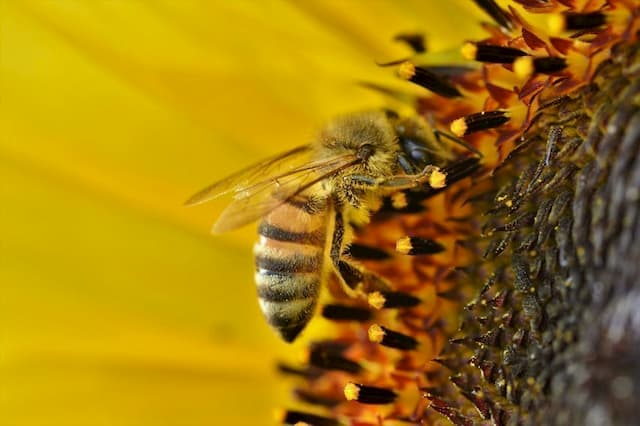Pesticides Would Cause Irreversible Damage to Bees’ Brains

A scientific study has revealed that the pesticides to which adult bees are exposed cause brain retardation, not without consequence, in their offspring.
We know that bees are the first victims of pesticides. And that, even before their birth. According to a study published in the scientific journal Proceedings of the Royal Society, the simple fact that an adult bee is exposed to phytosanitary products can indeed delay the cerebral development of its larvae and its babies.
Which, subsequently, can have “permanent and irreversible” consequences for their survival and that of the colony.
The neonicotinoids involved
Indeed, the work, carried out by seven British researchers, revealed that these young bees, once grown, we’re unable to perform certain essential tasks.
To reach this conclusion, the researchers exposed 100 adult bees in the laboratory to nectar enriched with neonicotinoids (a substance found in many pesticides), before using X-ray microtomography, which makes it possible to reconstitute in 3D certain parts of the brain.
“We measured the brain volume and studied the learning phase of bees from 3 to 12 days old, which had been exposed [to the neonicotinoids of nectar, reported by adult bees in the hive, ed.] During the brood and/or at the very beginning of adulthood ”, explain the researchers.
Neonicotinoid pesticides: what does the law say?
Neonicotinoids are banned in France since 1st September 2018. Available from mid-1990, this set of seven neurotoxic insecticides (acetamiprid, clothianidin, imidacloprid, thiacloprid, thiamethoxam, nitenpyram and dinotefuran), have become the most used pesticides in the world. In the European Union, only three substances have been banned since December 19th, 2018, for field crops: imidacloprid, clothianidin and thiamethoxam.
Severely disabled bees
The results then demonstrated that these insects, in comparison to others from unexposed colonies, had brains much smaller than normal and some parts of which were altered.
Richard Gill, the co-author of the study and researcher at Imperial College London, explains :
“Bee colonies act like superorganisms, so when toxins enter the colony [and in particular through food, which is actually contaminated with pesticides, ed.], These have the potential to cause problems in the development of babies there. “
In addition, contaminated bees, less lively, find it difficult to support themselves.
The scientist thus concludes:
“The results reveal how colonies can be affected by pesticides weeks after exposure, when their young become adults who may not be able to eat properly. Our work highlights the need to create rules on the use of pesticides by taking into account this risk of exposure.”
Enjoyed this? Get the week’s top France stories
One email every Sunday. Unsubscribe anytime.


